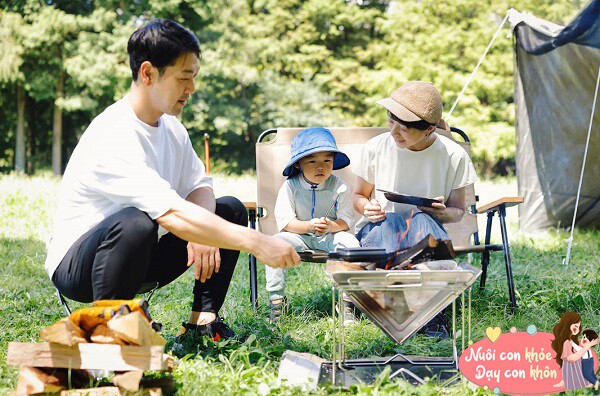The five years of primary school are crucial for a child’s development; it is a time when their character, habits, and values are formed.
During this period, the role of parents is especially important. As guides to their children, how can parents help prepare them for future challenges through daily companionship?
According to psychologists, there are three things that parents should persistently accompany their children in completing throughout the five years of primary school to create a solid foundation for their better development in higher grades.

Reading time together: A lighthouse illuminating the soul
“Books are the ladder of human progress.”
In the fast-paced modern life, the light of electronic screens is everywhere, but the scent of ink in books is becoming more and more precious.
The five years of primary school are a period when children have the richest imagination and the strongest curiosity. Reading time together not only brings the parent-child relationship closer but is also an important way to illuminate the lighthouse of the children’s souls.

Create a family reading habit.
Choose classic books that can inspire imagination, convey positive energy, orient values, and immerse your children in the world of words. There is no need to pursue speed or depth. What matters is the joy of discovering the unknown together, as well as the exchange of emotions and the formation of conflicting thoughts naturally during reading.
In this way, children not only learn to read, improve their language expression, and cognitive abilities but also broaden their horizons, stimulate their imagination, and creativity.
Children can learn to think better and develop independent learning abilities, which are precious assets for their future studies and life.

Life experiences: Building a strong foundation for adulthood
The five years of primary school are a child’s first effort to transition from the small family world to a larger social stage. At this time, parents should encourage and accompany their children to experience the colorful life, so their journey to adulthood is stronger and more resilient.
This could involve participating in community activities to nurture social responsibility and empathy. Parents can engage their children in volunteer activities such as distributing gifts to the poor, cleaning up parks, or organizing cultural and sports programs for the community.

Experience life together.
Additionally, immersing oneself in nature and marveling at its wonders is another way for children to discover and appreciate the beauty of the world around them. Taking children on outdoor trips, mountain climbing, visiting historical sites, and national parks will help them break free from the confines of home and school, broadening their horizons and fostering a sense of adventure.
Parents can also encourage children to try learning a new skill, such as cooking, painting, or playing a musical instrument. This helps children develop specific skills, cultivate perseverance, build self-confidence, and foster creativity. Let the children explore themselves through challenges and enjoy the joy of success.
Each experience is a precious asset for growth, and it will become the most enduring strength, supporting children through the ups and downs of life.

Emotional education: The foundation for a happy life
Emotions are the most realistic and complex part of human nature.
During the five years of primary school, children’s emotional management skills are initially formed. Therefore, parents should not only focus on academic results but also pay attention to their mental health, building a foundation for their happy life through emotional education.
Listen to your children, whether they are happy or facing difficulties, with enough patience and care so they feel understood and supported.
Teach children to recognize and express their emotions, helping them understand that all emotions are valuable. What matters is how to express and manage them appropriately.

Learn to control emotions and build a happy life.
Parents should also lead by example, demonstrating how to face life’s challenges and failures with a positive attitude, so children subtly learn optimism and resilience.
The best education often comes unintentionally during shared reading times, explorations, hugs, and listening.
The five years of primary school are not just the beginning of a child’s journey of knowledge acquisition but also a crucial stage in forming their character, developing good habits, and fostering healthy emotions.



































